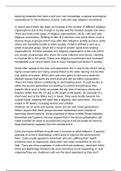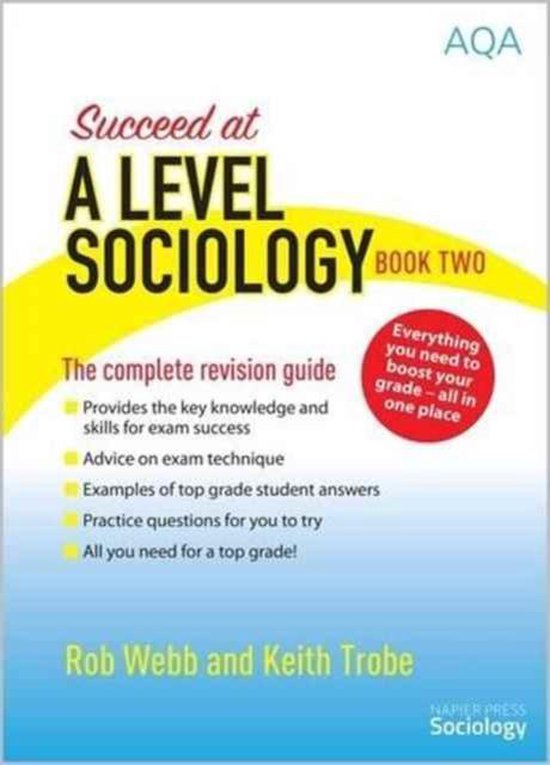Applying materials from item b and your own knowledge, evaluate sociological
explanations for the existence of sects, cults and new religious movements.
In recent years there has been an increase in the number of different religious
organisations due to the change in society and the freedom people now have.
There are three main types of religious organisations, sects, cults and new
religious movements. Relating to item B it mentions how these terms cover a
diverse range of groups which may offer their followers worldly success, while
others are resolutely hostile to wider society. Troeltch defined a sect as a
small, exclusive group, which are a result of schism (splits from existing
organisations). Another example of a religious organisation is the cult, which
are usually small groups who share the same interests and morals, claiming
to improve life in the world. These new religious movements have increased
dramatically over recent years, due to many changes and factors in society.
Sects often appeal to the poor and oppressed, this is due to the church being
highly conservative and being closely linked to the state, leaving it to be their
only option of escape. While other churches seem to last many centuries
Niebuhr argues that sects are short-lived and will die within a generation.
There are many factors contributing to short-lasting sects, it could be due to
either the second generation not wanting to commit everything as their
parents did to such a thing, as people like the idea of having a choice and
freedom within their life. Or due to the death of the leader. An example of a
short-lived sect is the Wako sect, in texas. They were hostile towards the
outside world, meaning the state had a negative view upon them. This sect
ended in 76 deaths, including women and children.
However not all sects end quickly, some survive over many generations.
Wilson argues that these groups become established sects instead of
becoming denominations. Some examples of these include Pentecostalists,
Adventists and Quakers. He also argued that in the future globalisation will
make it harder for sects to succeed this long as it will be harder for them to
keep themselves separate from the outside world.
Cults have been defined as quite new in contrast to other religions. A popular
example of a cult is Scientology, which aims to improve the world around
them. Cults usually appeal to individuals who are suffering from health
problems such as organismic deprivation and need somewhere to turn for
help. There are three examples of cults which are audience, client and cultric.
Stark and Bainbridge divided cults and used these terms depending on how
organised they are. Audience cults are the least organised as they don’t





